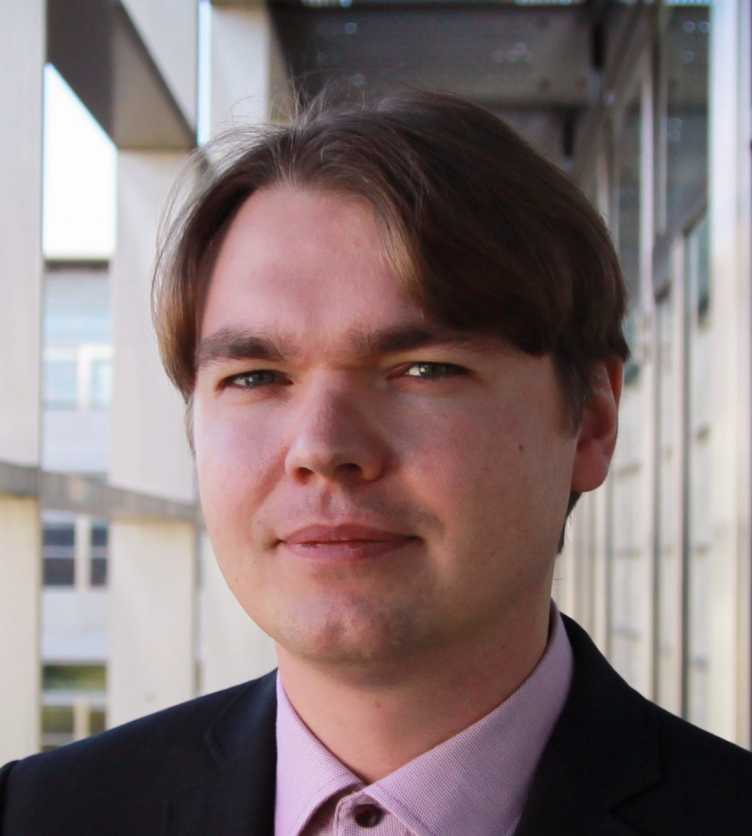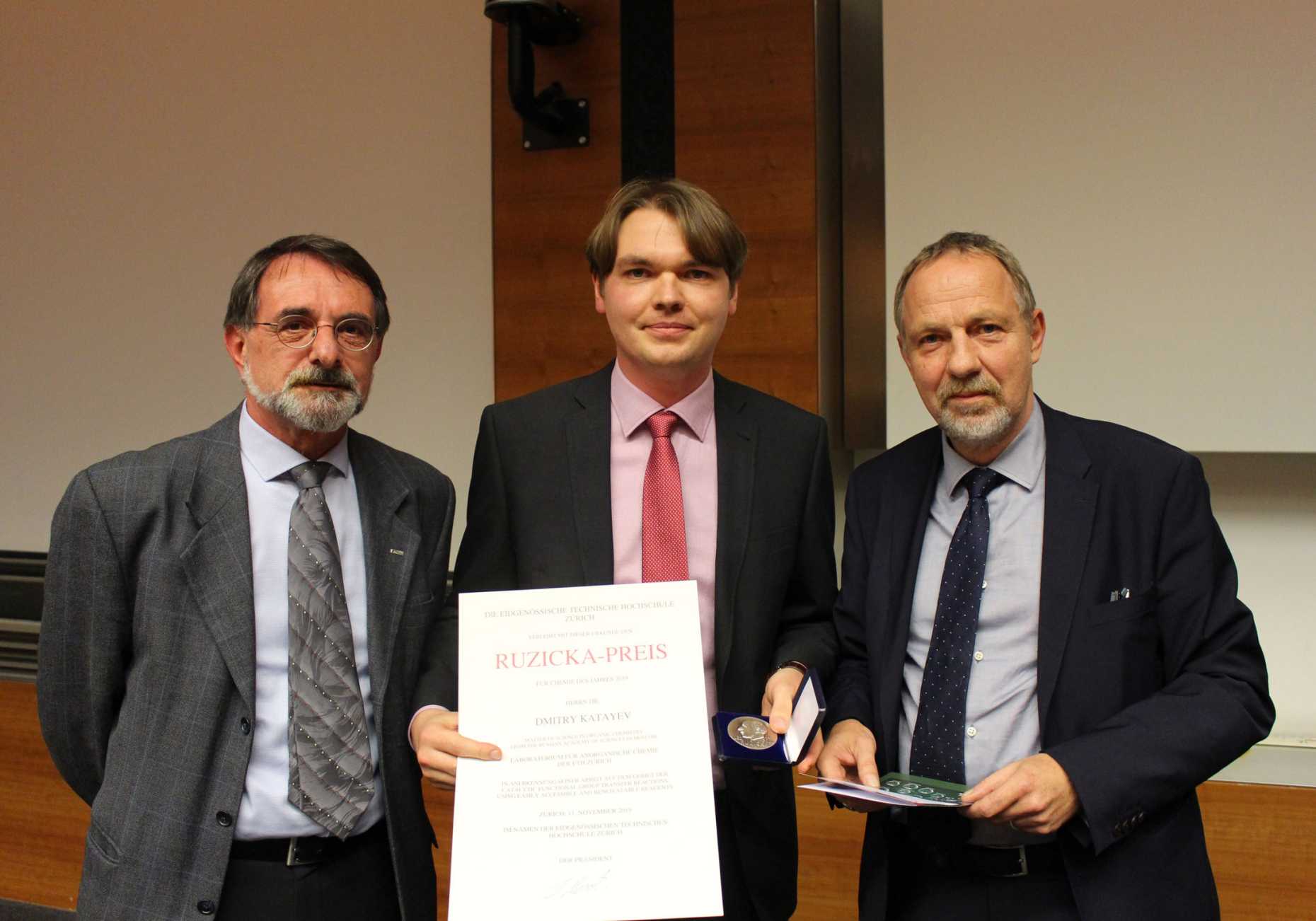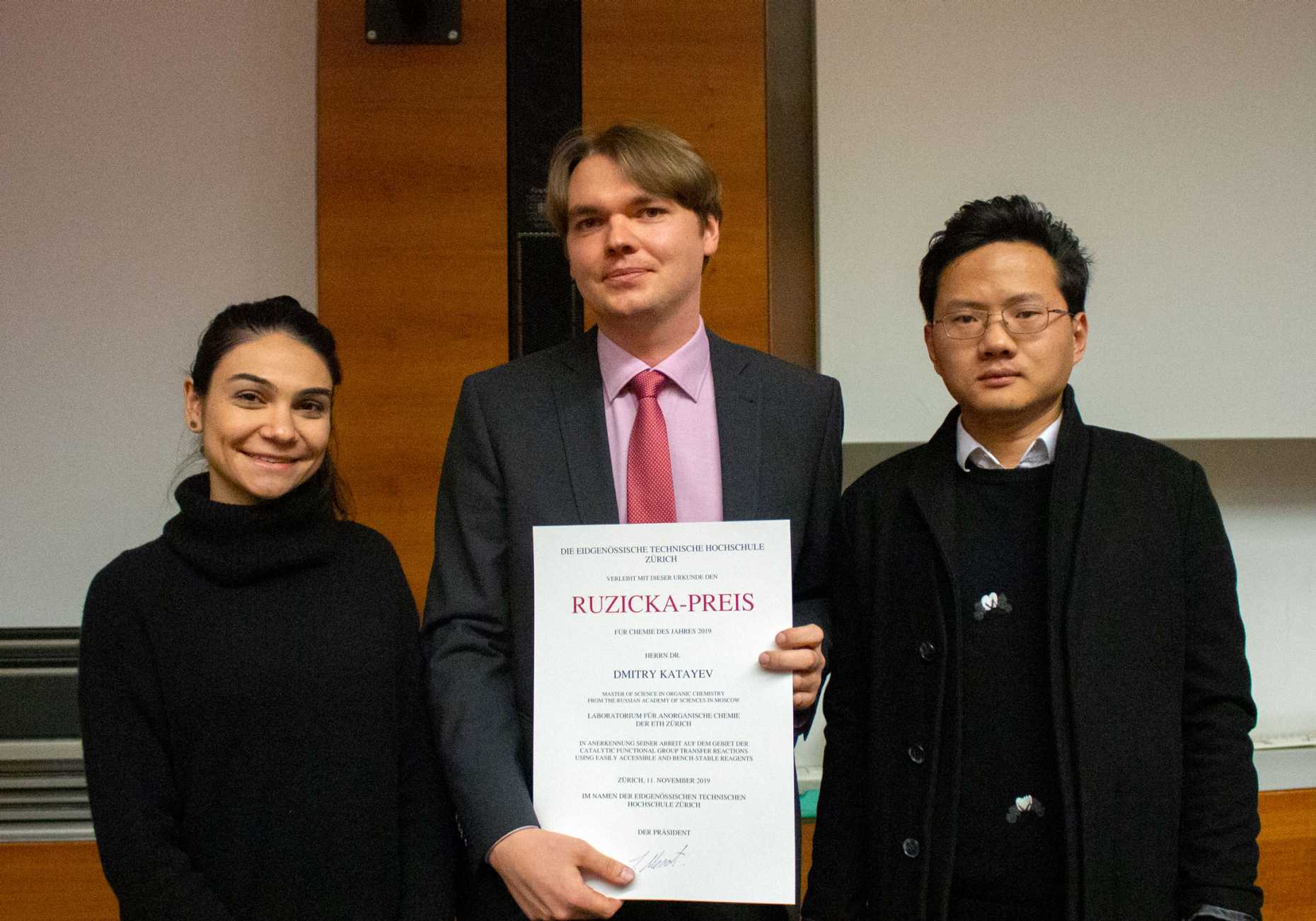Ruzicka Prize for Dmitry Katayev
- LAC
- Preise
- Highlights
- Awards
The Ruzicka Prize 2019 has been awarded to Dmitry Katayev, Group Leader in the Laboratory of Inorganic Chemistry at the Department of Chemistry and Applied Biosciences (D-CHAB). He was honored for his excellent new synthetic methods with easily accessible and bench-stable reagents.

Dmitry Katayev was born in 1986 in Kaluga, Russia. He studied chemistry at the Higher Chemical College of the Russian Academy of Sciences in Moscow. In 2012 he completed his doctorate in synthetic organic chemistry at the University of Geneva. After continuing his research at the TU Kaiserslautern, he joined Prof. A. Togni's group at ETH Zurich in 2015. He received an SNF Ambizione Fellowship and has been Principal Investigator at the D-CHAB since 2017. He recently received a one-year scholarship from the Holcim Foundation in order to continue and successfully bring to full fruition his original research activities.
Katayev is awarded for his research on catalytic functional group transfer reactions using easily accessible and bench stable reagents. He filed two patent applications on the topic of nitration. This methodology is currently being offered for licensing by ETH transfer. In recognition of his outstanding achievements, ETH Zurich is awarding Katayev the Ruzicka Prize 2019, which includes the Ruzicka Medal and a prize money of CHF 10,000.
The Ruzicka Prize promotes young chemistry talents
Since 1957, the Ruzicka Prize, named after the ETH professor and Nobel Prize winner Leopold Ruzicka, has been awarded annually to young researchers who publish outstanding work in the field of chemistry. It is funded by the Swiss chemical industry. Along with the Werner Prize, it is Switzerland’s most important award for the promotion of young talent in the field of chemistry.
The boards of trustees have discovered a wealth of talent since the prize was first awarded: the list of winners includes names such as Richard Ernst (magnetic resonance, Nobel Prize 1991) and Charles Weissmann (prion research, Robert Koch Medal 1995). It is open to chemistry researchers who are under 40 years old and have no permanent professorship.

